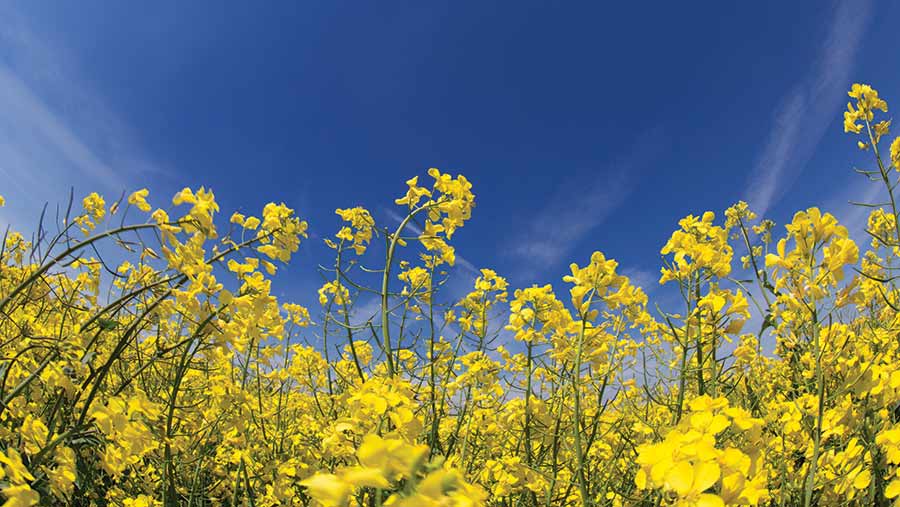Growers face penalties for high erucic acid levels in OSR
 © Tim Scrivener
© Tim Scrivener Dozens of oilseed rape growers could be hit with penalties following reports of high levels of erucic acid in the oil.
Some have been told they face deductions of up to £40/t, adding a further blow amid ongoing low prices and the cashflow crisis engulfing farming.
Two oilseed rape crushers, Cargill and ADM, have reported unusually high levels of erucic acid in crops harvested last year that are still being processed.
See also: 8 top tips to crack down on volunteer oilseed rape
Deliveries this spring into ADM’s rapeseed processing facility in Erith, Kent, and Cargill’s crushing plants in Liverpool and Hull, have recorded levels above the permissible thresholds.
In some cases, levels are as high as 30%, which is enough to cause the finished oil product to be diverted into non-food uses.
UK and EU legislation requires that oils and fats for food use can contain no more than 5% erucic acid expressed on a fat basis. To sell oil in excess of this level would contravene laws.
Currently, there is a contractual maximum of 2% erucic acid in “double zero” oilseed rape in the Federation of Oils, Seeds and Fats Associations (FOSFA) 26A contract, with the right to reject loads above that maximum.
A double zero refers to seed that is low in erucic acid as well as in glucosinolates. In reality, improvements in plant breeding now mean true double zero rapeseed normally has erucic acid levels below 0.5%.
Guy Gagen, NFU chief arable adviser, told Farmers Weekly an investigation was under way to identify the source of the problem, which remains unclear.
“With the exception of high erucic acid (HEAR) and specialist varieties, farmers have to grow ‘double zero’ varieties of oilseed rape, which are low in these contaminants,” said Mr Gagen.
“The source of the problem is unknown. It would be surprising that farmers should allow any mixing of varieties on their farm, or that somehow the crop should become contaminated in the first place.
“It could be either through the seed or high levels of volunteers three to four years ago. In any case, it would have to be quite high levels of contamination to exceed the conventional limit.”
* The NFU is encouraging any oilseed rape growers who have had these problems this season to contact NFU Callfirst on 0370 845 8458 to log the issue.

